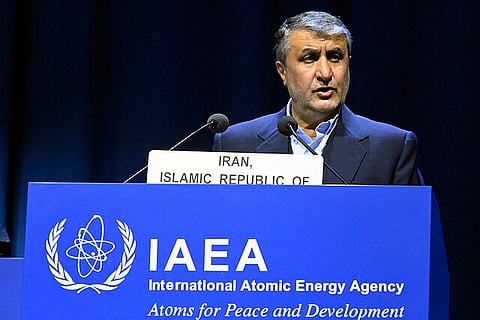

Iran has vowed to reconstruct its nuclear facilities "stronger than before" following military strikes, framing its nuclear program as entirely peaceful while facing renewed international sanctions and calls for diplomacy.
Iranian President Masoud Pezeshkian, during a visit to the country's Atomic Energy Organization, declared that the destruction of buildings would not set Iran's nuclear program back. "By destroying buildings... we will not be set back," he stated, affirming that Tehran "will build (the destroyed sites) stronger than before". He emphasized that the essential scientific knowledge resides with Iranian scientists, and the nuclear program is designed to "meet the essential needs of the people" for purposes such as treating diseases and enhancing public welfare. This defiant stance challenges the assessment of U.S. President Donald Trump, who claimed the strikes had "obliterated" Iran's nuclear program.
President Pezeshkian reiterated Iran's long-standing position that its nuclear ambitions are purely peaceful, asserting the country does not seek a nuclear weapon. He described the nuclear program as being for "solving people's problems," drawing a distinction between civilian applications and weaponization. This commitment to peaceful use is presented as a core national principle, with the leader emphasizing that the nation's scientific and technical capabilities cannot be destroyed by military attacks. The resolve to rebuild is portrayed as a matter of national pride and technological independence.
The pledge to rebuild comes alongside renewed efforts to revive diplomacy. At the IISS Manama Dialogue security conference in Bahrain, Omani Foreign Minister Badr Albusaidi publicly called for a return to negotiations between Iran and the United States. Oman, which hosted five rounds of talks between the two nations earlier this year, finds itself in a role as a traditional intermediary. The potential for a sixth round was reportedly derailed by the Israeli strikes in June. Iranian government spokeswoman Fatemeh Mohajerani confirmed that Tehran "has received messages" regarding the resumption of diplomacy.
Iran's efforts to rebuild its nuclear infrastructure are occurring under the renewed pressure of international sanctions. In September 2025, Britain, France, and Germany (the E3) triggered the "snapback" mechanism of the 2015 nuclear deal, formally known as the Joint Comprehensive Plan of Action (JCPOA). The E3 cited Iran's "significant non-performance" with its commitments, including enriching uranium beyond civilian needs and a lack of transparency with the International Atomic Energy Agency (IAEA). These sanctions restore a full UN arms embargo and restrictions on technology for Iran's ballistic missile program, measures that had been lifted under the original deal.